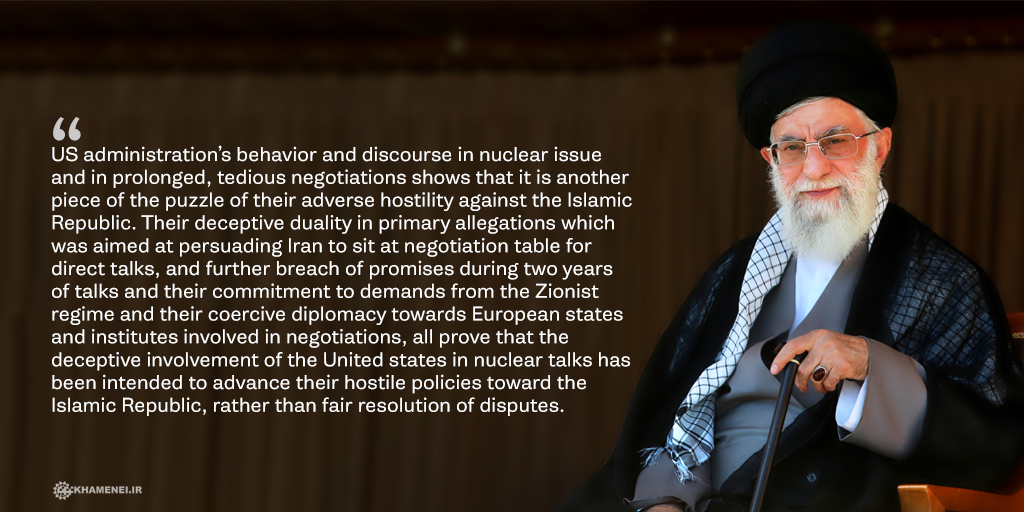Iran holds fragile relationships with world superpowers like the U.S. For example, take the highly buzzed about and controversial nuclear deal. The Joint Comprehensive Plan of Action (JCPOA) is an international agreement concerning the nuclear program of Iran. The United States, United Kingdom, Russia, China, and France (the six world superpowers) all signed to this agreement with Iran that limits the amounts of Uranium that Iranian facilities could enrich and use for nuclear purposes. Supreme Leader Ayatollah Ali Khamenei just recently approved of this agreement, displaying how different the structure of Iran's government is in comparison to other nations. The deal could not be passed on the authority of Iran's president, but only after the Supreme Leader of the Iranian theocracy approved. However, Khamenei expressed his reservations and oppositions about the deal, and finally laid out the final word on the conditions of the agreement. Khamenei said JCPOA would be voided if any type of additional sanctions were made. Read more about Khameni's thoughts on the deal here: http://iranprimer.usip.org/blog/2015/oct/21/khamenei-approves-nuclear-deal
The Supreme Leader's perspective and actions towards this nuclear deal exemplify how wary Iran is to work and cooperate with nations on an international stage. The Supreme Leader often expresses the hostilities that exist between America and Iran, and how JCPOA is another way for the US to "advance their hostilities toward Iran," (Twitter).
(Image retrieved from https://pbs.twimg.com/media/CR1uPNIUcAAsNcc.png:large)
With the leaders of the government so hesitant to cooperate with other nations and preserve the country from foreign influence will pose a a great issue in this day and age of globalization and technology.
With the leaders of the government so hesitant to cooperate with other nations and preserve the country from foreign influence will pose a a great issue in this day and age of globalization and technology.
I think the most challenging task for Iran will be for the government and its leaders to ease the sense of tension that exists between Iran and other countries like the U.S. With its vast resources in petroleum and its nuclear power potential, Iran will be a sought-after ally for many of the world's most powerful countries. However, the government will need to be more open to foreign influence and compromise, without viewing it as hostile acts by other countries that intend to abolish the Islamic beliefs and structure of Iran. I fear that if no efforts are made, Iran could become more isolated from the rest of the world, and sharpen their negative views of the rest of the world. I think that the nuclear deal (JCPOA) was implemented in the first place because the world's superpowers were afraid of Iran cultivating nuclear weapons and using them against the Western world.
In an increasingly interconnected world, I think that it is necessary for Iran to be willing to connect with other nations.

No comments:
Post a Comment